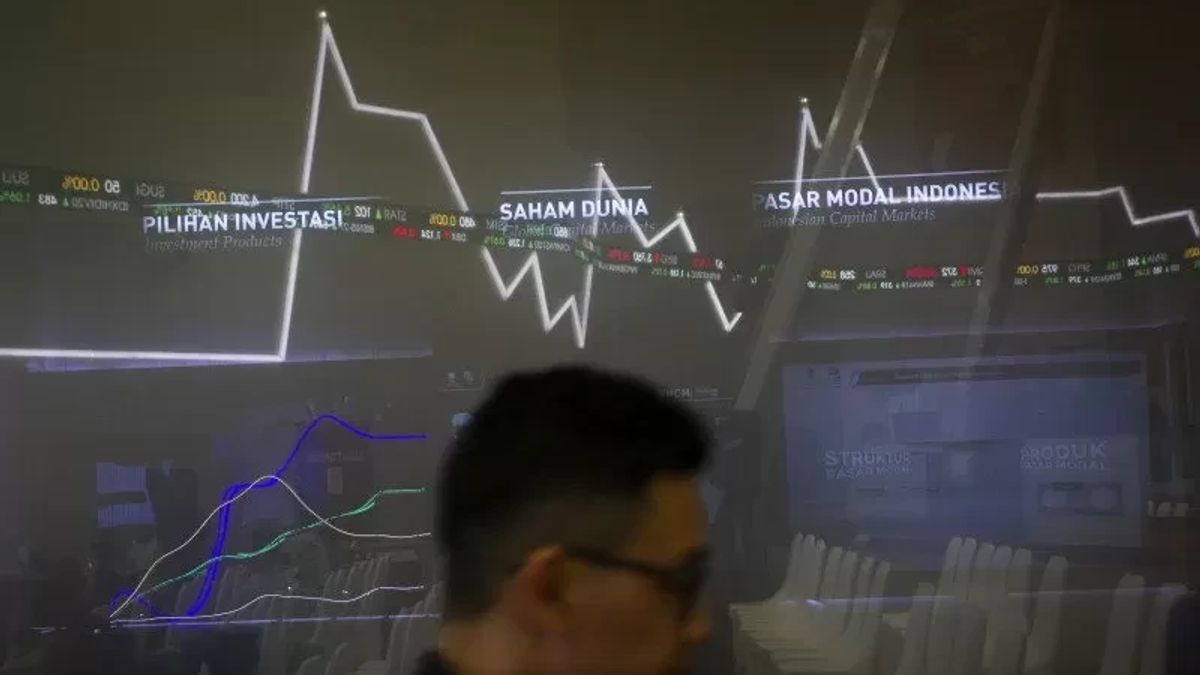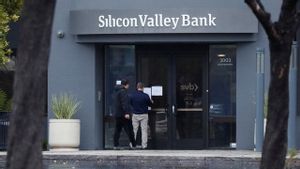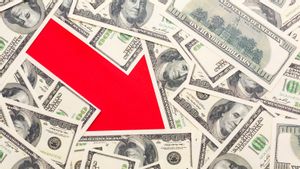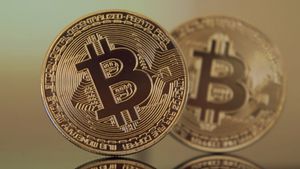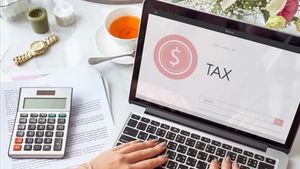JAKARTA - The Silicon Valley Bank (SVB) collapse hit global bank stocks in trading Tuesday, March 14.
A tumble in global stocks on assurances from US President Joe Biden and other policy makers did little to calm markets and prompt a rethink about the outlook for interest rates.
Biden's efforts to reassure markets and depositors come after emergency US measures to shore up banks by giving them access to additional funding failed to allay investor concerns about potential contagion to other lenders around the world.
Banking stocks in Asia extended losses, with major Australian banks ANZ, Westpac and NAB all down more than 2.0 percent and the Japanese banking sub-index plunged 6.7 percent in early trading to its lowest level since December.
The fierce race to change interest rate expectations is also sending waves through markets as investors bet the Federal Reserve will be reluctant to raise them next week.
"Even if the collapse of a few mid-range banks does not develop into a full-blown systemic crisis, it will likely trigger a credit crunch," said Paul Ashworth, North America Chief Economist at Capital Economics.
Traders now see a 50 percent chance of no rate hike at this month's meeting, with a rate cut for the second half of the year. Early last week, a 25 basis point increase had been fully forecasted, with a 70 percent chance of a 50 basis point increase.
With investors fearing additional defaults, major US banks lost about US$90 billion in stock market value on Monday, bringing their losses over the last three trading sessions to nearly USD 190 billion.
US regional banks were the hardest hit. First Republic Bank shares plunged more than 60 percent as new financing news failed to reassure investors, as did Western Alliance Bancorp and PacWest Bancorp.
Europe's STOXX banking index closed 5.7 percent lower. Germany's Commerzbank shed 12.7 percent and Credit Suisse tumbled 9.6 percent to a record low.
Biden said his administration's actions meant "Americans can have confidence that the banking system is safe," while also promising tougher regulation after the biggest US bank failure since the 2008 financial crisis.
"Your savings will be there when you need them," he says.
SVB and Signature Bank are the first bank failures since 2020.
SVB customers will have access to all their savings from Monday (13/3/2023) and regulators are setting up a new facility to give banks access to emergency funds. The Fed made it easier for banks to borrow from it in an emergency.
US bank regulators tried to reassure uneasy customers Monday (13/3/2023) who lined up outside SVB's headquarters in Santa Clara, California, offering coffee and doughnuts.
"Feel free to trade as usual. We are only asking for a little time because of the volume," FDIC (Federal Deposit Insurance Corporation) employee Luis Mayorga told waiting customers.
Regulators are also moving quickly to shut down Signature Bank of New York, which has come under pressure in recent days.
"Serious investigations need to be done into why regulators missed the red flags ... and what needs to be overhauled," said Mark Sobel, a former senior Treasury official and chair of the Official Forum of US Financial and Monetary Institutions, a think tank.
On the money market, indicators of credit risk in the US and the eurozone banking system edged up.
Bolstered by bets that the Fed may have to slow its rate hikes, gold prices, a safe haven, raced above the key $1,900 level.
Companies around the world with SVB accounts are rushing to assess the impact on their finances. In Germany, the central bank convened its crisis team to assess any impact.
VOIR éGALEMENT:
After a weekend of marathon talks, HSBC said it was buying the UK branch of SVB for a pound (USD 1.21).
While the UK's SVB was small, its sudden death prompted calls for government aid for the UK's start-up industry, and its highly exposed biotech sector in particular.
British Prime Minister Rishi Sunak said there was no concern about systemic risk. "Our bank is well capitalized, has strong liquidity," Sunak told ITV during a visit to the United States.
In China, where SVB is the main foreign bank for most start-ups, entrepreneurs and venture funds are also scrambling for alternative funding.
The English, Chinese, Japanese, Arabic, and French versions are automatically generated by the AI. So there may still be inaccuracies in translating, please always see Indonesian as our main language. (system supported by DigitalSiber.id)
